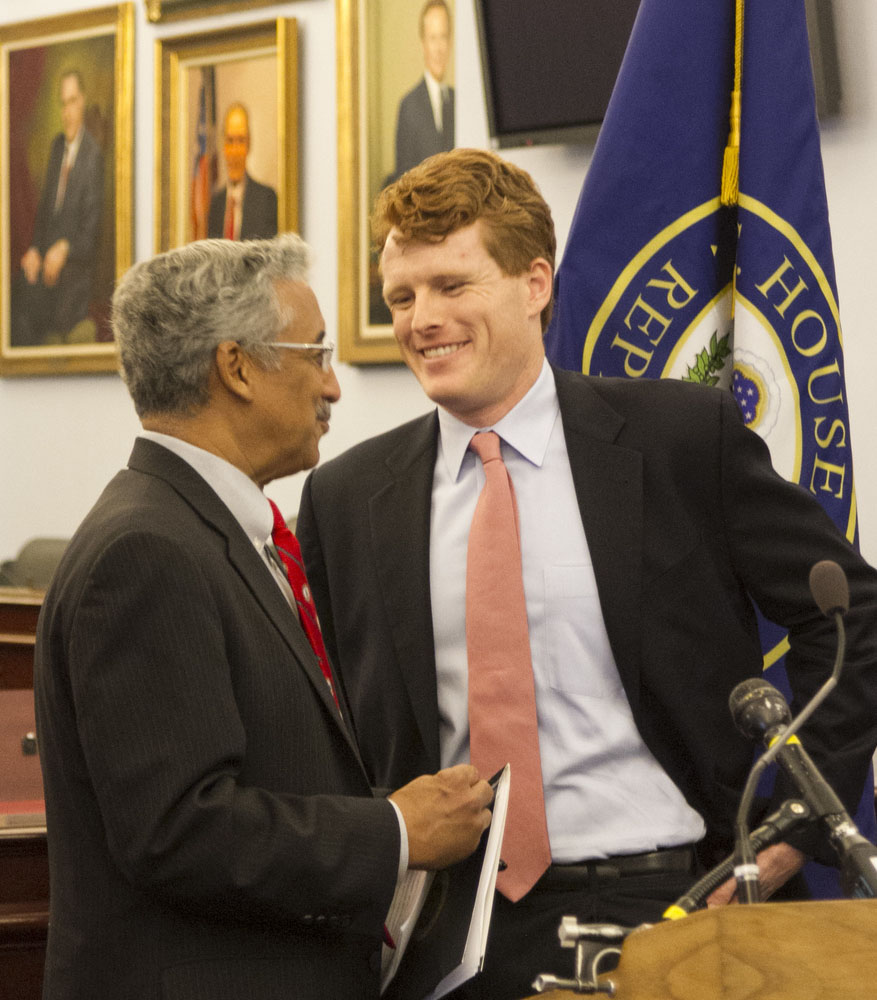From AU's Wall of Separation blog:
Freedom of religion is a fundamental American value. Our laws should be a shield to protect this freedom and not a sword to harm others.
The Do No Harm Act, re-introduced today by U.S. Reps. Joseph P. Kennedy III (D-Mass.) and Robert C. “Bobby” Scott (D-Va.), will help to ensure religion can’t be used to trump laws that protect people, like laws prohibiting discrimination, requiring equal pay, and protecting children’s welfare. It honors two core American values: religious freedom and the promise of equal protection under law.
This legislation, first introduced last year, would amend the Religious Freedom Restoration Act (RFRA) of 1993. RFRA would continue to provide important protections for religious exercise but the Do No Harm Act would clarify that RFRA may not be used to harm others.
RFRA was born of good intentions: Congress, with the support of a broad coalition of progressive and conservative groups, enacted RFRA to protect religious freedom, especially for religious minorities. In the two decades since, however, many have misconstrued and exploited the law in ways that would harm and deny the rights of others. We can’t stand by and watch the corruption of the noble concept of freedom of religion and belief. The Do No Harm Act will allow RFRA to be restored to its original purpose so that the law, once again, can be a shield and not a sword to harm others.
It is important to remember that the three years of discussion and debate on RFRA centered on how to protect minority religious practice from government proscription, such as ensuring Jewish children could wear yarmulkes in public schools or Muslim firefighters could wear short beards. Had anyone argued that RFRA was designed to allow some to run roughshod over the rights of others, the broad coalition would have splintered.
But somewhere along the way, an unexpected and unfortunate thing happened: Although RFRA certainly provided key protections for religious exercise, some also began to use it in ways that harmed and denied the rights of others.
At first, landlords who refused to rent apartments to unmarried couples on religious grounds brought lawsuits, in some cases under RFRA, to obtain exemptions from laws prohibiting housing discrimination. Since then, individuals, religiously affiliated federal contractors and even for-profit businesses have attempted to exploit RFRA to ignore laws, for example, that ensure you aren’t discriminated against at your job and when you seek needed healthcare. The most notorious example is Hobby Lobby, a national craft store chain with tens of thousands of employees, which used RFRA to refuse to provide its workers insurance coverage for contraception.
RFRA, of course, was never intended to do any of these things. It was conceived as a way to protect an individual’s right to religious freedom; it was never meant to be a mechanism for controlling what others do or taking away their rights.
As someone who worked on RFRA’s passage, I am deeply disappointed that the law is being misused exploited in these ways. And I am quite concerned about what’s coming next. On May 4, President Donald J. Trump signed an executive order that lays the groundwork for RFRA to be misused even further. It calls on Attorney General Jeff Sessions to write guidance that may well result in discrimination against LGBTQ people, women, religious minorities, nontheists and almost anyone else—all under the guise of religious freedom.
We should not allow people to engage in discrimination or the denial of services under the guise of religious liberty. Such an outcome both harms others and ultimately deteriorates this fundamental freedom. I believe it’s past time to get back to the original understanding of RFRA and, indeed, religious freedom.
The Do No Harm Act simply says that RFRA shouldn’t be used to trump laws that are designed to protect our neighbors, like those prohibiting discrimination, requiring equal pay and protecting children’s welfare. It also says government officials and employees can’t use RFRA to refuse to provide services to the public; we all deserve to be treated equally by our government.
At the same time, this bill ensures that RFRA will remain a vital way to protect religious exercise, such as for Sikh soldiers barred by Army regulations from serving their country while wearing their articles of faith.
The Do No Harm Act will protect religious freedom of all Americans and we need it now more than ever. Our country is strongest when we are all free to believe or not, as we see fit, and to practice our faith—without hurting others.
I hope you’ll join me in urging your representative to support this much-needed legislation.

